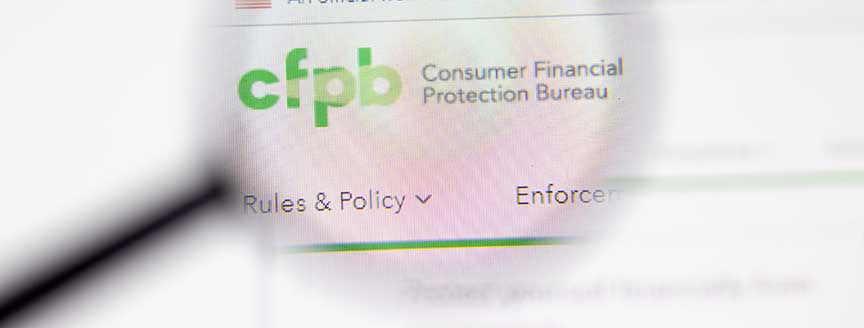CFPB Prioritized Assessment Targets Auto Loan Servicing

In the wake of COVID-19, the CFPB has shifted over half of its supervisory activities to “Prioritized Assessments” (PAs). PAs were designed to obtain real-time information to analyze pandemic-related market developments to determine which markets were most likely to pose risk to consumers. Auto loan servicing was the first target of their Summer 2021 Supervisory Highlights report. In this recent issue, the agency has identified several unfair acts or practices related to Lender-Placed Collateral Protection Insurance.
As the vanguard of blanket insurance, our agency consistently informs community lenders that the design of a CPI program consumes team resources, burdens struggling members/borrowers, and welcomes regulatory discipline.
See: Top Legal and Compliance Benefits of Blanket Insurance
CPI Violations of the Consumer Financial Protection Act
Charging for unnecessary Collateral Protection Insurance (CPI)
Charging for CPI after repossession
Inaccurate payment posting
Failure to follow disclosed payment application order
Inaccurate payoff amounts
Under the “Prohibition on Unfair acts or Practices” in Sections 1031 and 1036 of the Consumer Financial Protections Act, “an act or practice is unfair when it causes or is likely to cause substantial injury… and the substantial injury is not outweighed by the countervailing benefits to consumers.” Examiners found that servicers engaged in an unfair act or practice first by charging consumers for unnecessary CPI. The first question that comes to mind after reading this definition is: Is there ever a time when a CPI premium does not cause undue hardship to a borrower?
See: Is CPI Fair for Your Auto Loan Borrowers?
While the Bureau specializes in a condemning tone, given the ample room for errors in a CPI program, it’s easy for us to sympathize with the lenders found guilty of this practice. In most instances, unnecessary placements are unintentional. They are working within an error-prone model.
In recent years, CPI providers have tried to improve accuracy, but problems highlighted by The CPFB do not merely reflect personnel underperformance. They reveal the flawed design of a manual approach to protecting loan collateral. CPI can only be reactive, policies are deployed after lenders are notified of primary policy lapse. Minimal tolerance exists for policy change miscommunications and mail delays. These mishaps create painful conversations with upset members/borrowers who feel scammed by their lender. Insurance warnings don’t do the relationship any favors. Few customers can empathize with a lender’s need to secure their note. The popularity of online, “do-it-yourself” auto and homeowner’s insurance policies has only increased the frequency of unnecessary placements. Customers report that disputes from their previous provider’s CPI policy have negatively impacted their Credit Union and Bank ratings.
See: Force-placed CPI – Is There a Better Way?
The Takeaway:
The CFPB concludes their report by assuring that the lenders found in violation have ceased issuing CPI policies. We agree that the only way to really “fix” a CPI program is to discard it completely. Anything short of switching to a blanket approach is welcoming regulatory inquiries and member dissatisfaction.
If you’re looking to distance yourself from CPI before regulators come knocking, we can show you a way out with our Blanket Approach. It’s borrower-friendly, examiner friendly, and offers full protection for the lender. Not to mention the fact that it saves lenders time and money. It’s very real and very easy.
See: Can I really stop tracking Insurance and force-placing CPI coverage on my loans?

*Source: CFPB Supervisory Highlights Issue 24, Summer 2021







